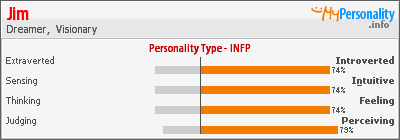At Cathlicity and Covenant Fr. Burke opines, "The Primus' words constitute nothing less than an explicit rejection of the Windsor Report."
The pretentiously titled but sometimes interesting Anglican Communion Institute notes something of the same movement with even less joy. In this essay they have this and other complaints:
First, as we and others have already noted, the Dublin meeting represented only a small fraction of the Communion’s active members. Thus, from the very outset it lacked one of the defining criteria of a Communion Instrument, the ability to function as a body that “interprets and articulates the common faith of the Church’s members (consensus fidelium)”. (Covenant 3.1.4.) Last week, the consensus fidelium was to be found elsewhere with those who did not attend.
There are a lot of things wrong with these comments, and indeed in the case of the "institute" the entire essay. The biggest item is an assumption that the simple act of suggesting something they agree with even partially, makes it precedent. So for instance, the "consensus fidelium" is noted from the proposed so-called "covenant" as though a proposed draft is authoritative. At this moment the so-called "covenant" is the official statement of two small provinces a committee or two and no one else. But here we see it cited as an authoritative document.
The problems continue. The "institute" spends energy attacking the primate's meeting's "representative" standing. They do this based on ASA. They count the alleged ASA of the various non-attending provinces and find a majority of the communion's total thereby finding the primates representing a minority. This has all sorts of problems both as a technique and a methodology.
- Different provinces use different and variantly valid methodologies for counting their ASA. Regardless it is probable that more Nigerians are in services than Englishmen on an average Sunday. But the precise margin is difficult to establish.
- ASA is an interesting and arguably important statistic. It is not however the only valid measure of a province.
- In the larger ASA central African provinces, the laity have the least impact on who the primate is. Using laity count to establish representative standing is therefor problematic.
- In any event, church councils are not traditionally proportionately representative. The size of a province had never meant more than the fact of its existence. The rule has been that primates are all, save only ++Canterbury, equal.
- Contrary to their attempt to treat drafts (so-called "covenant") and reports ("The Windsor Report") as canon, the statements by Lambeth Conferences, Archbishop appointed committees and prior primate's meetings are not canonical. They have no legitimate legal standing so when the "institute" argues from them as precedence they have no legitimate basis.
George Conger, a doctrinaire anti-North American if ever one has appeared in the communion takes a similar, flawed, tack. He writes in "Church of England Newspaper" that:
The reforms put forward by Dr. Williams and the Dublin primates have abandoned the calls for discipline and good order made by the primates since the 1997 Jerusalem meeting, conceding there is not political will to take action against the Episcopal Church.Here again is an attempt to put commentary down as law. In this case as one might expect from an extremely homophobic author in an extremely homophobic publication, the attempt is extraordinarily egregious.
- We should note from the beginning that despite its pretentious name (what is it with these people) the "Church of England Newspaper" is not a voice of that church.
- And it is important to note that what the communion has been is at least as in dispute as what it will not become. Mr. Conger and his friends want to posit a communion that has power to punish badly acting provinces as they see "badly acting." No such communion has ever existed.
They know that, they just do not like it very much. So they refer to various commentary and communique verbiage coming from prior meetings as well as various "reports" as though they had canon law standing. Not particularly honest perhaps but when one is trying to spin law from hole cloth one has to take ones precedents wherever they can be invented.
FWIW
jimB





No comments:
Post a Comment